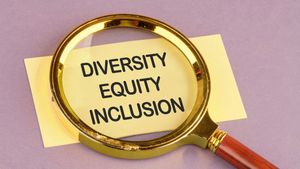Illustration by David Gray.
Little is known of Bei Tong, the author of Beijing Comrades. It is hard to determine whether the author is male or female, though Scott Myers, the translator, uses the female pronoun to describe Bei Tong in the book’s introduction. When she put the story online in 1998, serialized on the now extinct Web site China Men’s and Boys’ Paradise, Bei Tong was living in New York, bored and reading a lot of gay fiction. Disheartened by the generally poor quality of what was available, she decided to write her own.
Beijing Comrades spans the decades shortly after Deng Xiaoping’s policy of opening and reform took full swing, providing a riveting account of the crony economy that emerged, as we follow the rise and fall of Handong, a princeling who leverages his connections to make it big in the new China. Handong, who owns multiple houses scattered throughout Beijing, keeps an apartment specifically to bring boys back to, getting his right-hand man, Liu Zheng, to source them.
As the book opens, Liu Zheng tells Handong about a young boy he has just met on Di Street on a trip to find workers. The boy, Lan Yu, is a 16-year-old from the far-flung western province of Xinjiang, a new transplant to the capital. Handong meets with him, they sleep together, and Handong tries to pay him off with a thousand yuan. Lan Yu rejects his money, and a relationship soon blossoms, with Lan Yu playing the counterpoint to Handong’s craven mercantilism.
Like a large impressionist painting, the work is a broad sweep of China at a pivotal moment, economically, politically, and culturally. If one looks closely, it is easy to become lost in the staccato brushstrokes, but at a remove, the work elegantly captures the lives of the LGBT community at a time when being gay was still considered a mental illness, and gay relationships as inevitably doomed.
“It defined a generation,” says Myers. “For many gay men in China, reading Beijing Comrades was a powerful experience because it was one of a small number of texts in which they could see themselves reflected.”
While the plot isn’t groundbreaking — cold and affectless Handong initially sees Lan Yu as a cheap fuck, he falls for him, and then life inevitably intervenes — the story was hugely influential.
When it first appeared, homosexuality had only just been decriminalized. Until 1997 it fell under the crime of “hooliganism,” an intentionally vague catchall used to suppress anything deemed marginal or countercultural. It was only in 2001 that homosexuality was no longer defined as a mental illness. It was within the half-light of these two landmark dates that the text initially appeared, giving one of the first and most honest accounts of a homosexual relationship in China.
The initial text was swiftly censored. Aside from the homosexual relationship at the core of the plot, there was gratuitous sex, depictions of rampant economic corruption, and even a blood-soaked foray into the immediate aftermath of the Tiananmen massacre. Short of burning the flag, the text could not have been more controversial. Still, despite being censored, it was passed around within the LGBT community, giving people a window through which to view themselves.
It was also, as an online novella, patchy and error-ridden. Prior to publishing a version in Taiwan in 2002, the author reworked the text, smoothing some of the edges. It was then picked up by the Hong Kong director Stanley Kwan, who turned it into the movie Lan Yu, arguably the most famous and influential Chinese LGBT film of all time. A neutered and sexless version of the text was produced a few years later with an aim to be published on the mainland, but the censors were unmoved. The translation is drawn from these sources, as well as new sections the author gave to the translator, all of which remain unavailable to a mainland audience. As such, it is a book that exists only in translation, a patchwork of fragments.
“Most of the fictional works from late-1990s China are tragedies, and this perhaps reflects the feeling of the hopelessness of gay relationships, that gay relationships were something that could not last,” says Myers. In the book, Handong never fully embraces his homosexuality. He marries a woman, the beautiful and ambitious Lin Ping, but he spends the entire marriage fantasizing about Lan Yu. Within 18 months, he is divorced and alone. As Handong says, “I didn’t completely stop sleeping with women. I went to bed with them not because of physiological need, nor even because I liked them, but because of a need that was psychological: I wanted to prove to myself that I was a normal man.”
“Normality” is culturally defined, and though it ceased to be considered a mental illness, homosexuality still exists in a gray area in China. Official government policy is typified by the three nos — no support, no opposition, no promotion — which is loosely analogous to the now-defunct “don’t ask, don’t tell” of the U.S. military. Clinics offering cures for homosexuality still exist, though they are under increasing pressure from activists and are being forced to temper some of their more extreme practices.
In cities like Beijing and Shanghai, the LGBT community, while far from receiving the visibility and legal recognition common in the West, is vibrant. This year Shanghai Pride, though parade-less because of government regulations forbidding mass gatherings, took place across a series of venues. It included a fun run, lectures, and a queer film festival. LGBT activists are agitating for greater rights and have seen some small legislative victories — Chen Qiuyan, a student, won a case in August over the description of homosexuality in textbooks. While not ending in victories, other cases, such as the one brought by the activist Xiang Xiaohan after he was unable to register his LGBT charity, are notable for being heard at all.
China is still not an easy place to be out, and many choose not to come out to families or colleagues. In a recent survey by China-based NGO WorkForLGBT, which asked nearly 19,000 LGBT people whether they were out, only 3% of men and 6% of women identified as completely out. However, half the men and three-quarters of the women said they had come out to friends. This shows that private tolerance exists and that people are able to carve out spaces in their lives where they can live freely.
As such, Beijing Comrades is a historical document. When Handong jokes with Lan Yu about their being arrested for “hooliganism,” and when he sends him to a psychologist who confirms he has a mental illness, these situations are mercifully far removed from the reality of contemporary LGBT lives. Handong laments that he does not have the “courage” that Lan Yu has to face his own sexuality. Lan Yu isconfident in his identity. Despite constant pushing from Handong to try to be with women, and to look to a future of stable heterosexual marriage with kids, Lan Yu is unbending. Their relationship, punctuated by Handong’s inner torment over whether he can ever be out to his mother or be seen in public with Lan Yu, is a testament to a time when being gay in China required almost impossible courage. Today, the reality is such that the tragedy of their relationship seems overplayed. The thematic palette for LGBT stories in China, once so dark, is opening up to reflect a brighter reality. The most beautiful thing about Beijing Comrades may be the fact that it feels a bit dated.
Beijing Comrades (Feminist Comrades) is out now. Purchase here.
Like what you see here? Subscribe and be the first to receive the latest issue of Out. Subscribe to print here and receive a complimentary digital subscription.












































































